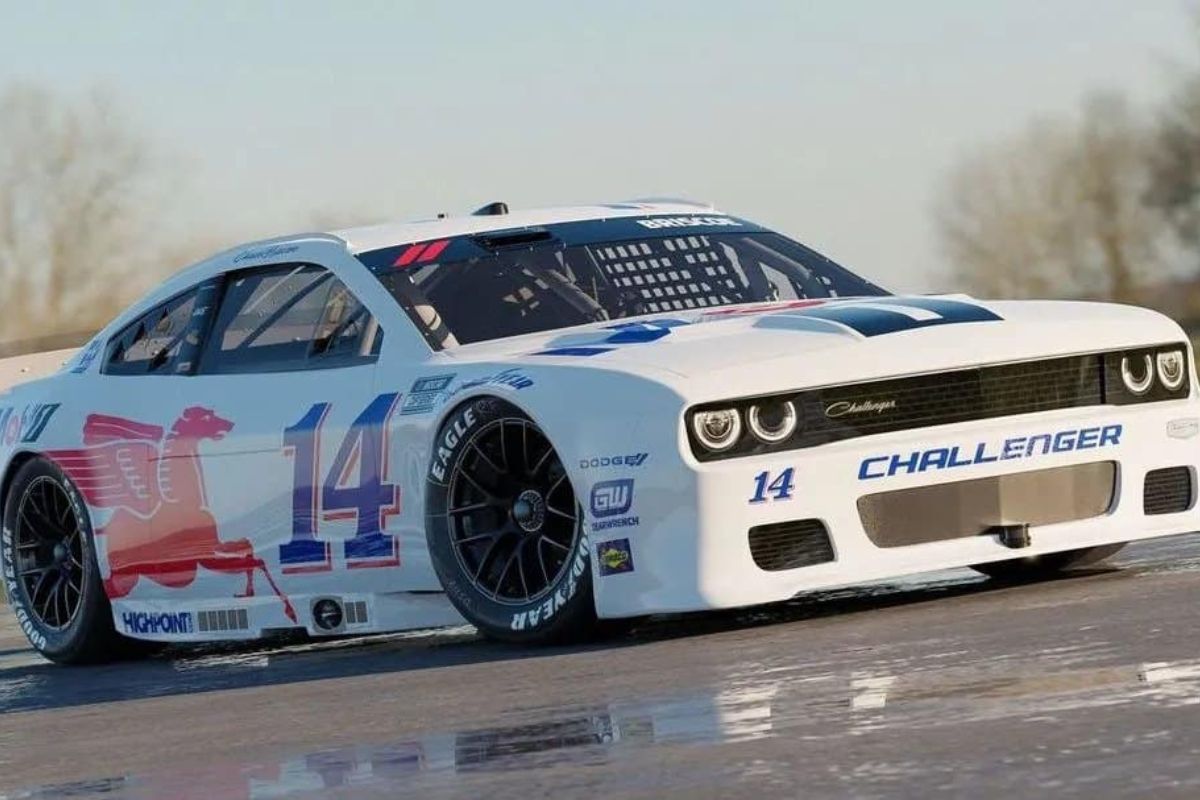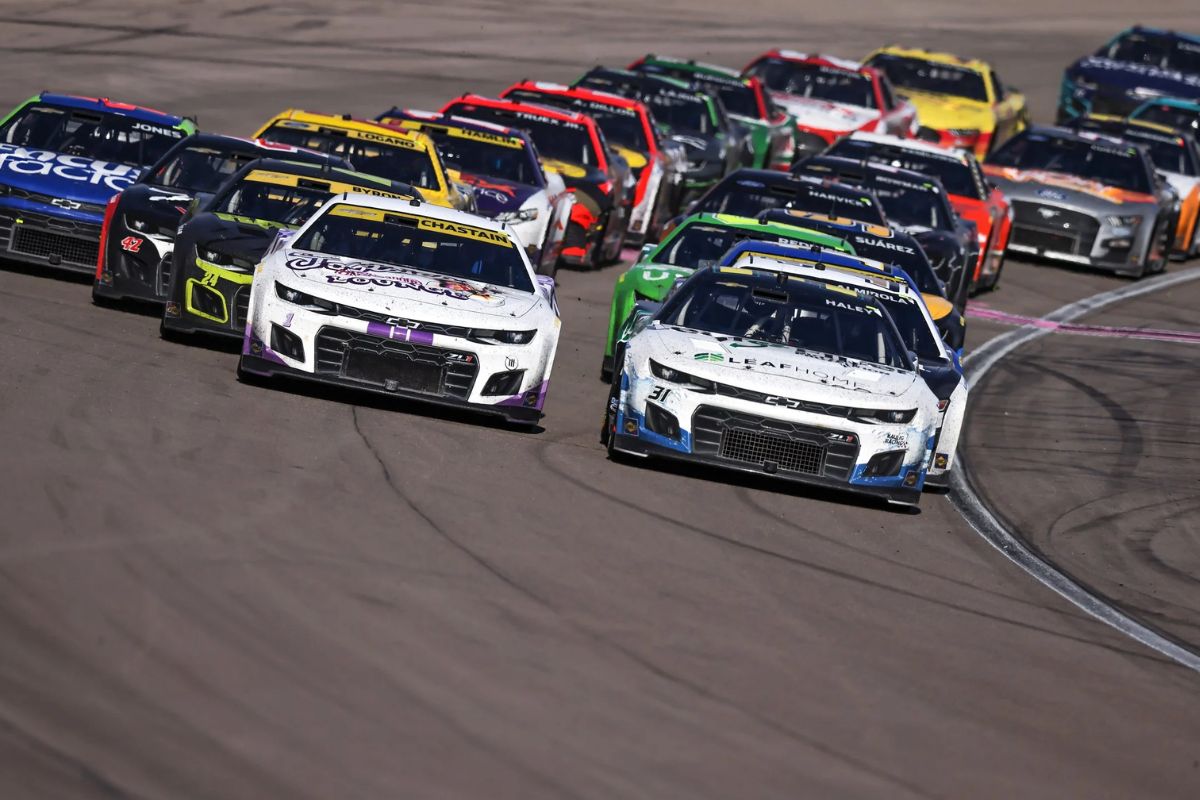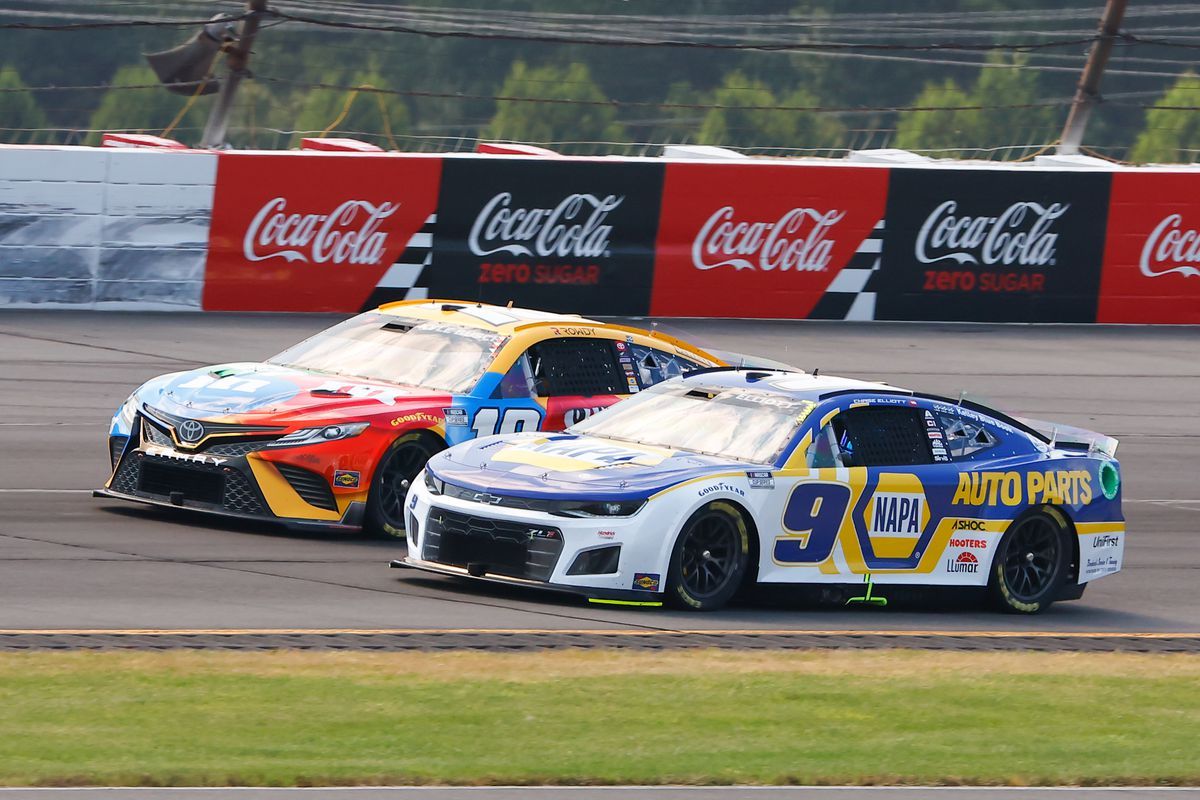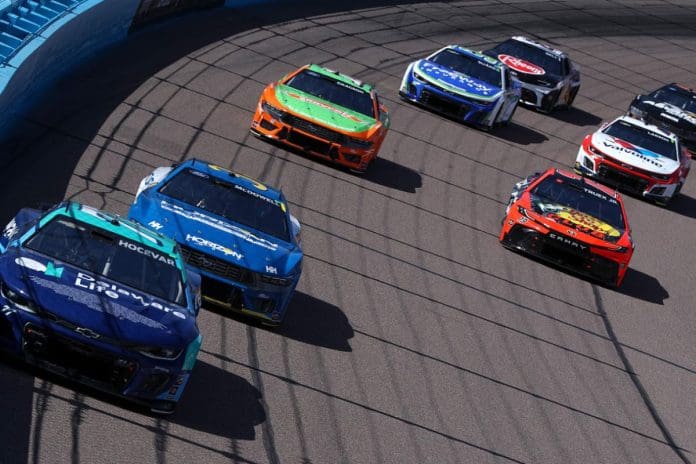NASCAR’s New Manufacturers Spark Rumors: As NASCAR approaches the 2027 racing season, the rumored entry of manufacturers such as Honda and Hyundai hints at significant technological shifts, potentially leading to a horsepower increase. This strategic expansion not only aims to diversify the competition but also to integrate advanced hybrid technologies, reflecting NASCAR’s commitment to innovation and sustainability. With the sport’s landscape poised for transformation, these changes could dramatically alter race dynamics, enriching both the appeal and the challenge of NASCAR events. The implications of such improvements raise important questions about the future competitive balance and the evolution of racing strategies.
Key Takeaways
- New manufacturers like Honda and Hyundai are expected to bring advanced hybrid technologies to NASCAR.
- Hybrid engines could potentially increase horsepower, enhancing race competitiveness.
- Testing near Charlotte focuses on integrating these new propulsion technologies.
- Fans anticipate faster races due to more powerful hybrid engine capabilities.
- NASCAR aims to balance technological innovation with traditional racing elements.
NASCAR’s Potential Partnership with New Car Brands
In a strategic move to broaden its brand portfolio and increase global appeal, NASCAR is currently exploring potential partnerships with international car manufacturers, including prominent brands such as Honda and Hyundai. This initiative reflects NASCAR’s commitment to align with evolving automotive technologies and market dynamics while reinforcing its presence on the global motorsports stage.
The potential incorporation of Honda and Hyundai into NASCAR’s lineup is not just a diversification strategy but also a response to the shifting landscape of automotive engineering and consumer preferences. Both brands bring substantial technological expertise, particularly in the domains of electrification and hybrid technologies, which are critical as NASCAR contemplates a future that complies with stricter emission regulations.
Moreover, integrating these international brands could boost NASCAR’s marketability abroad. Honda and Hyundai have robust global networks and brand recognitions that could serve as channels for NASCAR to tap into previously unexploited markets, especially in Asia where both manufacturers have a strong foothold.

Excitement Among NASCAR Fans
The prospect of new manufacturers and the introduction of hybrid engines in NASCAR has sparked considerable excitement among its fanbase. This enthusiasm stems not merely from the novelty of these developments but also from the potential they hold to revolutionize the sport. John Probst, NASCAR’s Chief Racing Development Officer, has been instrumental in kindling this interest by hinting at hybrid technology’s pivotal role in enticing new OEMs to the series.
The introduction of hybrid engines represents a game-changing shift for NASCAR, a series deeply rooted in traditional internal combustion engine models. This shift is viewed by fans as a forward-thinking move that aligns with global automotive trends towards more sustainable and technologically advanced vehicles.
“Amid growing sales for hybrids, prospective OEMs have told @NASCAR they will only join if the series offers a compelling narrative for consumers with hybrid cars or sustainable fuels, per source… NASCAR could go hybrid in ’26 or ’27 if a new OEM joins.”-(ADAM STERN)
Moreover, the prospect of hybrid technology in NASCAR is not just about adhering to modernity but also about enhancing the race-day experience. Fans are intrigued by how these technologies will be integrated into the race strategy and what new dimensions they could add to the sport. The potential for new tactical elements, such as energy recovery systems and strategic deployment of electric enhancement, could add layers of complexity and excitement to races, deepening fan engagement.
Fan Expectations for Increased Horsepower
Building on this momentum, fan expectations are now soaring in anticipation of a potential increase in horsepower due to the introduction of hybrid engines. NASCAR aficionados are well-versed in the mechanics and potential of their beloved sport, and many are keenly aware of the possibilities that hybrid technology can unleash. This anticipation stems not only from a desire for faster, more competitive races but also from a growing appreciation for technological advancements that could redefine auto racing.
“Hybrid = more power…Sustainable fuels (higher ethanol) = more power & shorter fuel runs…Will likely need a new engine blueprint to make the field fair(er) for joining OEMs. I personally think an unrestricted 4.0L V8 would do the job just as well as the current choked down 5.8L.”-(A FAN)
“This could prob be the way to get more power. At least I hope lol”-( A FAN)
“dont care about new manufacturers but if this means more horsepower then im down!”-( A FAN)
The prospect of hybrid engines in NASCAR is not just about notable improvements. Fans are looking forward to a significant boost in horsepower that could see vehicles achieve higher speeds and better performance on the track. This expectation is rooted in an understanding that hybrid engines can provide instant torque delivery and improved power output, elements that are vital in NASCAR racing.
Moreover, the integration of sustainable fuels with hybrid technology could introduce a new era where speed and sustainability coexist, further enriching the fan experience.

NASCAR’s Hybridization Plans
NASCAR’s commitment to hybridization reflects a strategic vision to modernize the sport through advanced, sustainable technologies. As NASCAR navigates this revolutionary era, it is actively testing an array of propulsion technologies at its dedicated facility near Charlotte. Paul Doleshal, group manager of Toyota Motorsports North America, emphasised on how fan engagement is their top priority amid these on going hybridization plans.
“We understand that we need to provide some very strong competitive entertainment for the race fan, and we don’t want to impact that at all. So, you’re going to probably see some experimentation by all of us with different things just as we search for what that is.”-(Doleshal)
The exploration into hybrid technology is particularly significant. By integrating hybrid systems, NASCAR aims to improve the racing dynamics while potentially reducing the carbon footprint of its events. This shift is indicative of a broader trend in global motorsports, where the integration of electric and hybrid technologies is becoming increasingly prevalent. NASCAR’s approach involves rigorous testing of hybrid engines to secure they meet the sport’s unique demands for speed, durability, and spectator appeal.
Moreover, the inclusion of hybrids is expected to introduce new strategic elements into races. Teams and drivers will need to adapt their tactics to manage energy recovery systems and deploy hybrid power efficiently. This could lead to more varied race outcomes and heightened competition, keeping fans engaged and expanding NASCAR’s appeal to a new demographic interested in sustainable automotive technologies.
Hope for a Better Racing Product
Enthusiasm is mounting among fans and stakeholders as NASCAR’s integration of new manufacturers and hybrid technologies promises to improve the competitiveness and appeal of the sport. The introduction of new Original Equipment Manufacturers (OEMs) and the adoption of advanced hybrid models are crucial in elevating NASCAR’s racing dynamics. This strategic move is not just about diversifying the grid but enriching the very fabric of stock car racing, leading to a more engaging and unpredictable contest.
The optimism stems from expectations that new entrants will bring cutting-edge technologies and fresh competitive strategies, which are vital for evolving the sport’s technical standards and spectator experience. The integration of hybrid technology, in particular, speaks volumes about NASCAR’s commitment to modernization and sustainability, aligning with global automotive trends while preserving the unique character of the sport.
| Aspect | Expected Impact |
|---|---|
| Technical Innovation | Improved engine performance and efficiency |
| Competitive Balance | More level playing field for teams |
| Spectator Engagement | Increased race unpredictability and excitement |
| Environmental Impact | Reduced emissions and noise levels |
| Market Expansion | Broader appeal and global market reach |

News in Brief: NASCAR’s New Manufacturers
The potential integration of Honda and Hyundai into NASCAR by 2027, accompanied by advances in hybrid technology, promises a significant evolution in the sport’s competitive landscape. This strategic move is likely to not only increase horsepower but also improve the racing dynamics, aligning with NASCAR’s objectives of innovation and enhanced viewer engagement.
Such developments highlight a crucial shift towards a harmonious blend of tradition with modern technology, setting the stage for a revitalized and more unpredictable racing experience.
Our Reader’s Queries
Q: What is the next manufacturer to enter NASCAR?
A: Rumors swirl around potential new engine regulations in the NASCAR Cup Series, possibly arriving by 2026 or 2027, potentially paving the way for a new manufacturer alongside Chevrolet, Ford, and Toyota. Honda emerges as a prominent name in garage speculation, poised to potentially enter the top echelons of Stock Car competition.
Q: Is Honda joining NASCAR?
A: Honda’s anticipated entry into NASCAR could materialize in the 2026 season, with preparations possibly commencing in 2024 and extending through the following year. While the Cup Series may not be in dire need of a fourth manufacturer, the addition of Honda would undoubtedly inject fresh excitement and vitality into the sport.
Q: What is the next generation car in NASCAR 2024?
A: Exciting developments await in the 2024 NASCAR Cup season as Toyota Racing Development and Ford Performance gear up to unveil updated versions of their iconic Camry and Mustang race cars, promising fresh looks on the track alongside new drivers and venues.
Also Read: NASCAR Pursuit of New Manufacturers: Driving Innovation and Excitement



Nascar doesn’t have to look far to see hybrid power trains from various manufacturers. IMSA, owned by Nascar, prototypes are using hybrid power now. Manufacturers include Cadillac, Porsche, BMW, Lamborghini. Chevy and Honda are releasing hybrid power trains in IndyCar for the 2nd half of the season. The technology is out there and it’s reliable. Time for Nascar to move into the 21st century.
Has NASCAR their minds this is ridiculous. They need to go back to their roots, run what you broung win on Sunday buy on Monday, I think they are making a very big mistake!